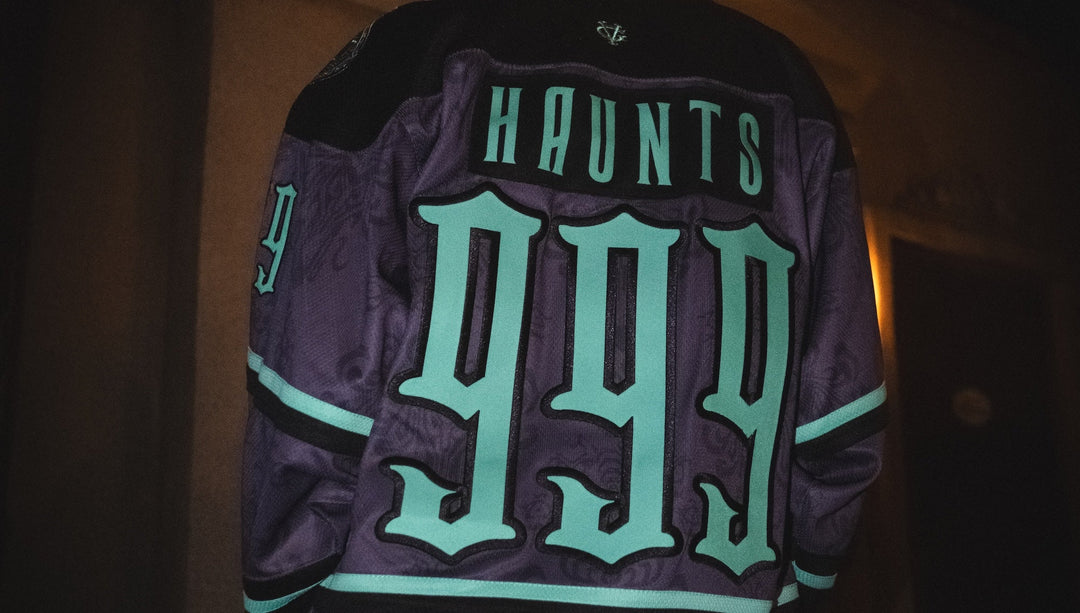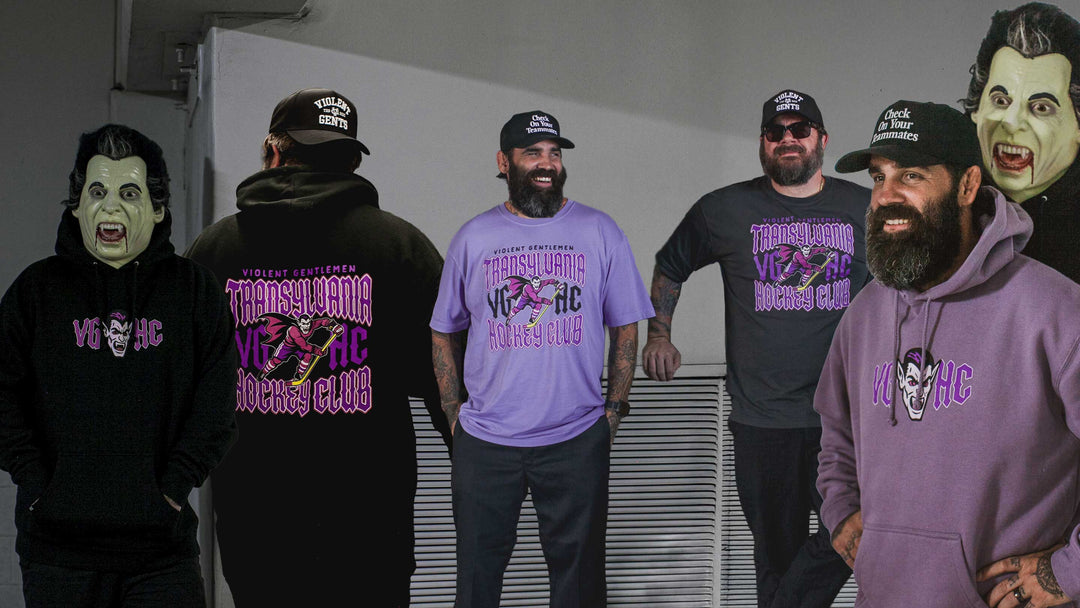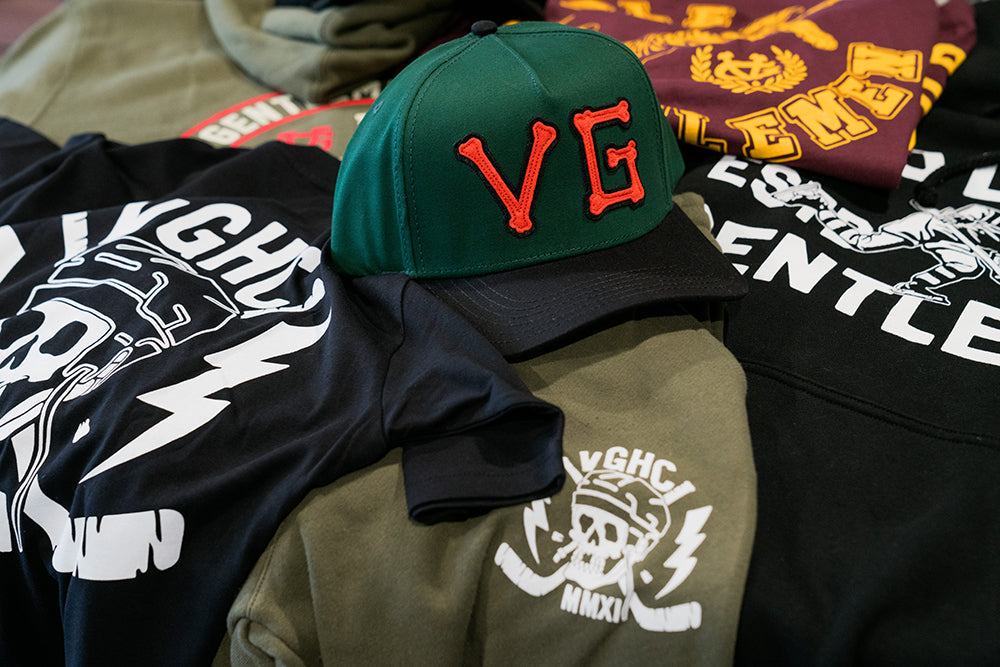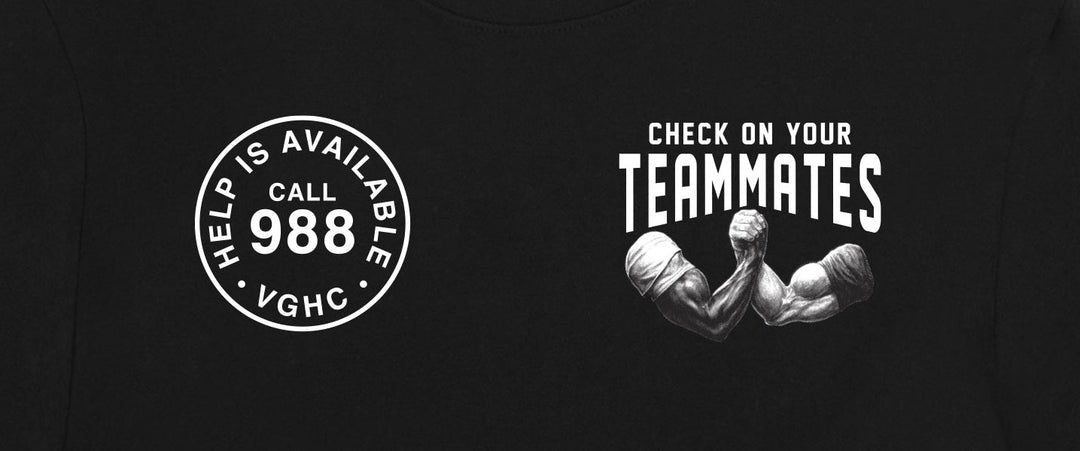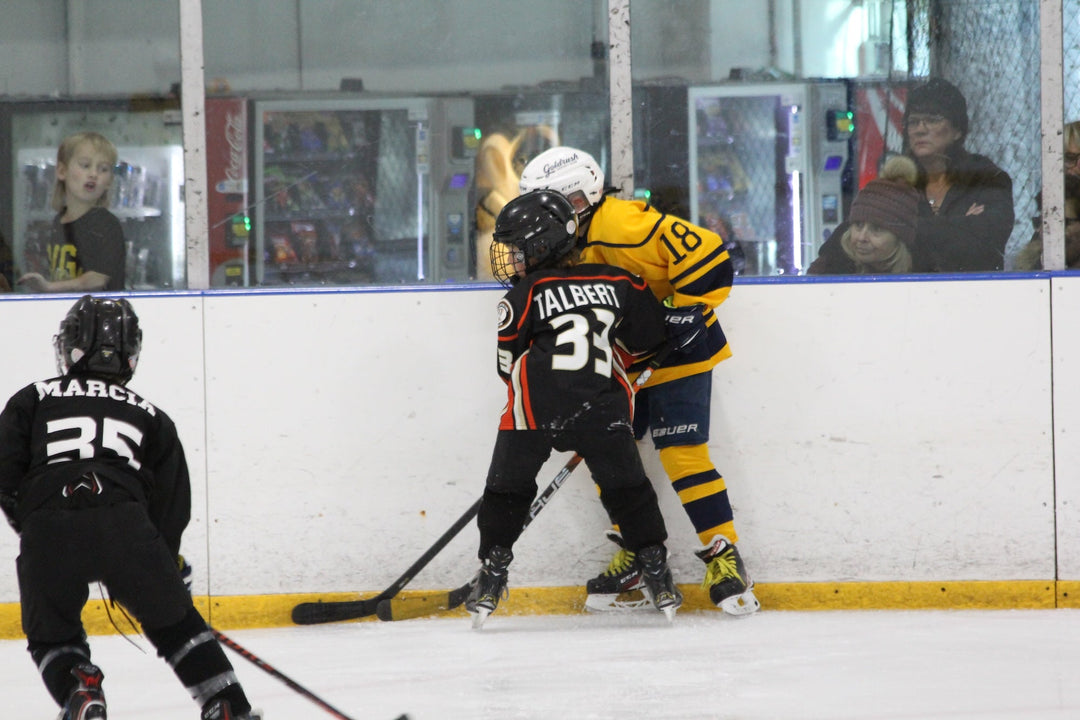Tales of Violent Gentlemen - McPhee vs Tocchet
Respect, tradition, and sportsmanship are the cornerstones of our brand. It’s no coincidence that these fundamental characteristics are also synonymous with hockey, and have a rich history throughout the sport.
Whether it’s Montreal carrying members of Boston’s “Kraut Line” off the ice before the trio headed off to the Second World War, or the iconic exchange between goaltender “Sugar” Jim Henry and Maurice Richard after the Canadiens eliminated the Bruins from the postseason in 1952, there’s no shortage of examples to illustrate that, even amidst fierce competition, respect and tradition undergird our stories from the game.

To honor this legacy, Violent Gentlemen will be going into the vault each month to bring you tales from the past. In partnership with historian Mike Commito, VGHC will be exploring notable moments in hockey history that highlight the building blocks of our brand and the reasons we love hockey.
George McPhee vs Rick Tocchet, April 12, 1986
The prognosticators didn’t give the New York Rangers much of a chance heading in the 1986 playoffs. The club had barely made the cut for the postseason, and were facing the Philadelphia Flyers, winners of the Patrick Division.
On paper, the Blueshirts were heavily outmatched and it appeared as though they were destined for an early exit. The only problem for the Flyers was that, it seemed the Rangers never got that memo.
When the series opened on April 9, New York stunned Philadelphia. They set the pace early into the contest, and went on to score six goals. Backstopped by the incredible play of young goaltender John Vanbiesbrouck, the Rangers limited the Flyers to two goals and took the first game in the best-of-five series. In reflecting on his team’s performance, Philly’s coach Mike Keenan said, “it was the worst game we’ve played here in two years.” Needless to say, when play resumed at the Spectrum the following night, the Flyers needed to be better.
They didn’t disappoint. Philadelphia responded, and forced New York back into its shell. There was no offensive flurry this time around for the Rangers, who were only able to muster a single goal. Meanwhile, the Flyers fired 44 shots on net, and while they were only able to get two by Vanbiesbrouck, that’s all they’d need. They clamped down on defense, and checked the Rangers at 12 shots to even the series.
With the series tied, the Blueshirts returned to Broadway for the first pivotal matchup at Madison Square Garden. It would be a critical game. If the Rangers were to take control again, they wouldn’t be able to sit back and rely on the stellar play of their rookie goaltender. Rather, everyone would have to step up if they hoped to prove the naysayers wrong.
Early into the second period of that game, the Flyers took a 2-1 lead. Looking to light a fire under his fellow Rangers and turn the tide, George McPhee sought out Rick Tocchet at center ice.
McPhee was in his third season with the Rangers and had already established himself as a hard-nosed, scrappy winger who wasn’t afraid to shake things up. Four years earlier he had won the Hobey Baker Award as a member of Bowling Green University, but now as an NHL regular, he had developed a reputation as, pound for pound, one of the league’s toughest players.
Although McPhee was undersized by league standards, he appeared diminutive compared to Tocchet. The Flyers’ forward had three inches and nearly fifty pounds on his counterpart, but that didn’t matter. This was, in fact, the third time the pair had fought that season.

Given that McPhee was on the losing end of their last encounter, it had all the makings for a spirited rematch. Despite the fact that McPhee had an injured right hand, his determination did not waver. Although the broadcasters suggested that he might opt to throw from his left side, McPhee soldiered on, connecting with a series of punches from his ailing hand. Tocchet landed some good blows as well, but McPhee clearly held his own in the face of a significant size disparity. Both players battled hard until they were broken up by the linesman.

When the dust settled, it was almost too close to call, but given that Tocchet had sustained a cut to his face, the decision narrowly went to McPhee.
While the home crowd raucously supported McPhee’s efforts, Rangers’ backup goaltender Glen Hanlon may have been the most excited individual in Madison Square Garden. In the wake of the fight, he boisterously rapped the boards and shouted across the ice at Tocchet. At one point, Hanlon even got up on the bench and barked and gestured towards Flyers’ coach Mike Keenan.

Although the fight had no immediate impact on the game, the reaction to it, from both the crowd and the Rangers, may have been the shot in the arm the team needed. Still trailing when the third period began, New York scored four unanswered goals to win the game, and retake the series lead.
The Rangers would go on to complete the upset and advance as far as the Prince of Wales Conference Final, before falling to the Canadiens.
While it’s sometimes hard to see how an in-game event like a fight can shift a team’s momentum, it’s that type of energy that can have a galvanizing effect on a club, especially in the playoffs. Despite his size disadvantage and the injury to his right hand, McPhee didn’t back down. His tenacity and willingness to battle for his club certainly didn’t go unnoticed. McPhee’s efforts set the tone for his team and undoubtedly resonated with them for the remainder of their incredible postseason run.




